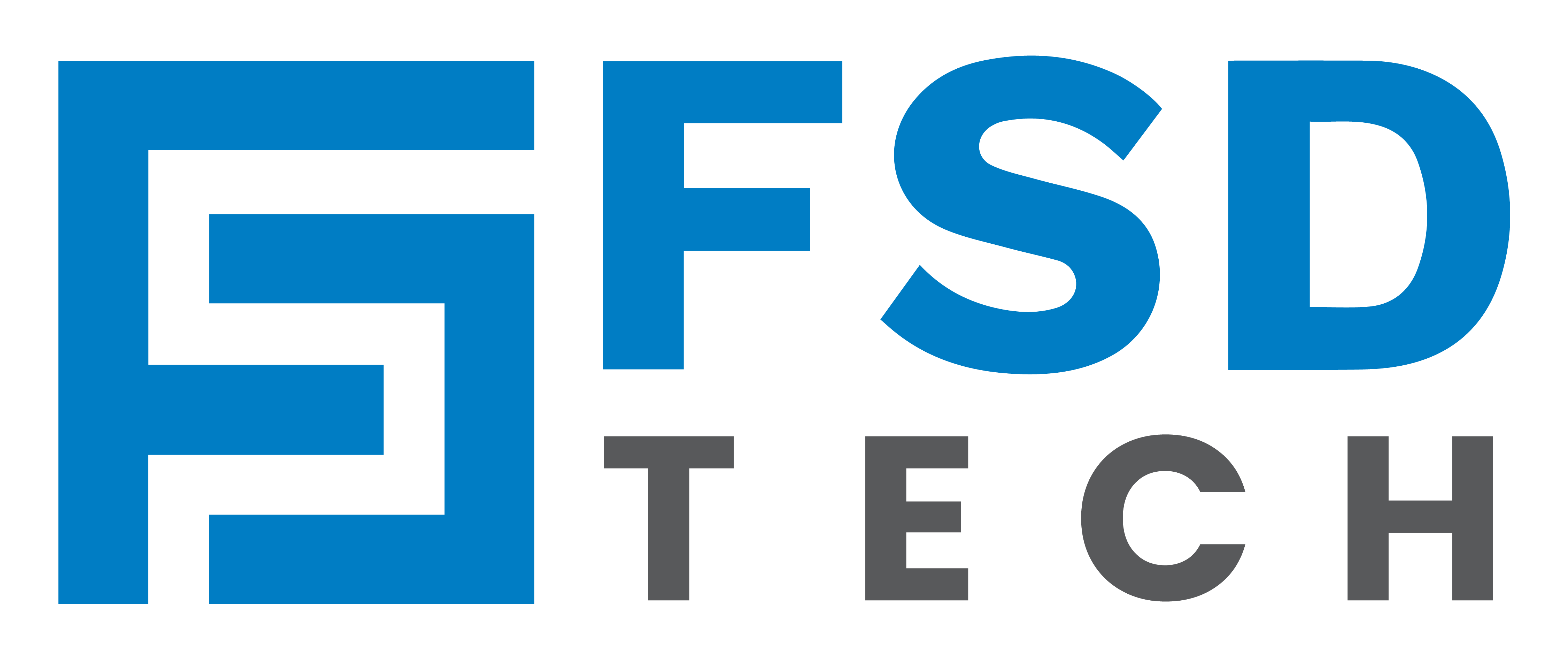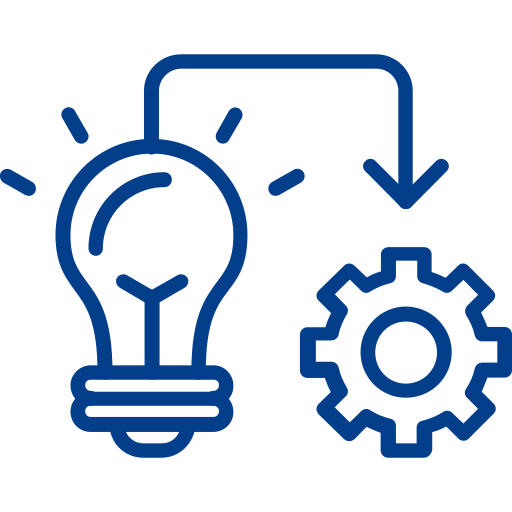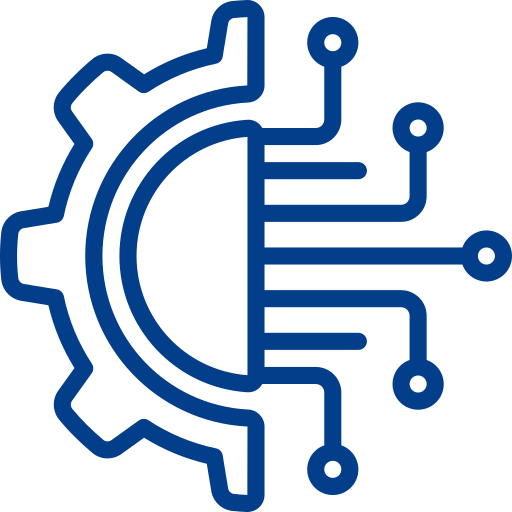FishOS Private Cloud Platform by FSD-Tech
Tired of complex OpenStack deployments and migration risk? FSD-Tech delivers FishOS using a zero-downtime, 7-step methodology and provides expert 24/7 managed services across the GCC, guaranteeing performance and stability.
Accelerate your OpenStack and Kubernetes cloud deployments with FishOS, an enterprise-grade private cloud platform offering full-stack automation, rapid provisioning, and AI-driven operational intelligence for GCC markets and beyond.

Why Choose FSD-Tech FishOS for Your Private Cloud?
FSD-Tech brings localized expertise and business-aligned cloud transformation services built on FishOS, an advanced platform that integrates OpenStack, Kubernetes, and Ceph. Designed for enterprises, telcos, and service providers, FishOS simplifies complex cloud infrastructure management with:

One-click installation, scaling, and upgrades with zero downtime

Automated provisioning and lifecycle management at scale

Hybrid cloud orchestration across on-premise and public clouds

AI-powered workload rebalancing and health monitoring

Robust multi-tenant security and role-based access controls

Built-in observability and predictive analytics for proactive optimization
Unlike typical cloud stacks, FishOS offers complete automation from Day-1 deployment to Day-2 operations, reducing costs, accelerating time-to-market, and ensuring SLA-driven reliability.
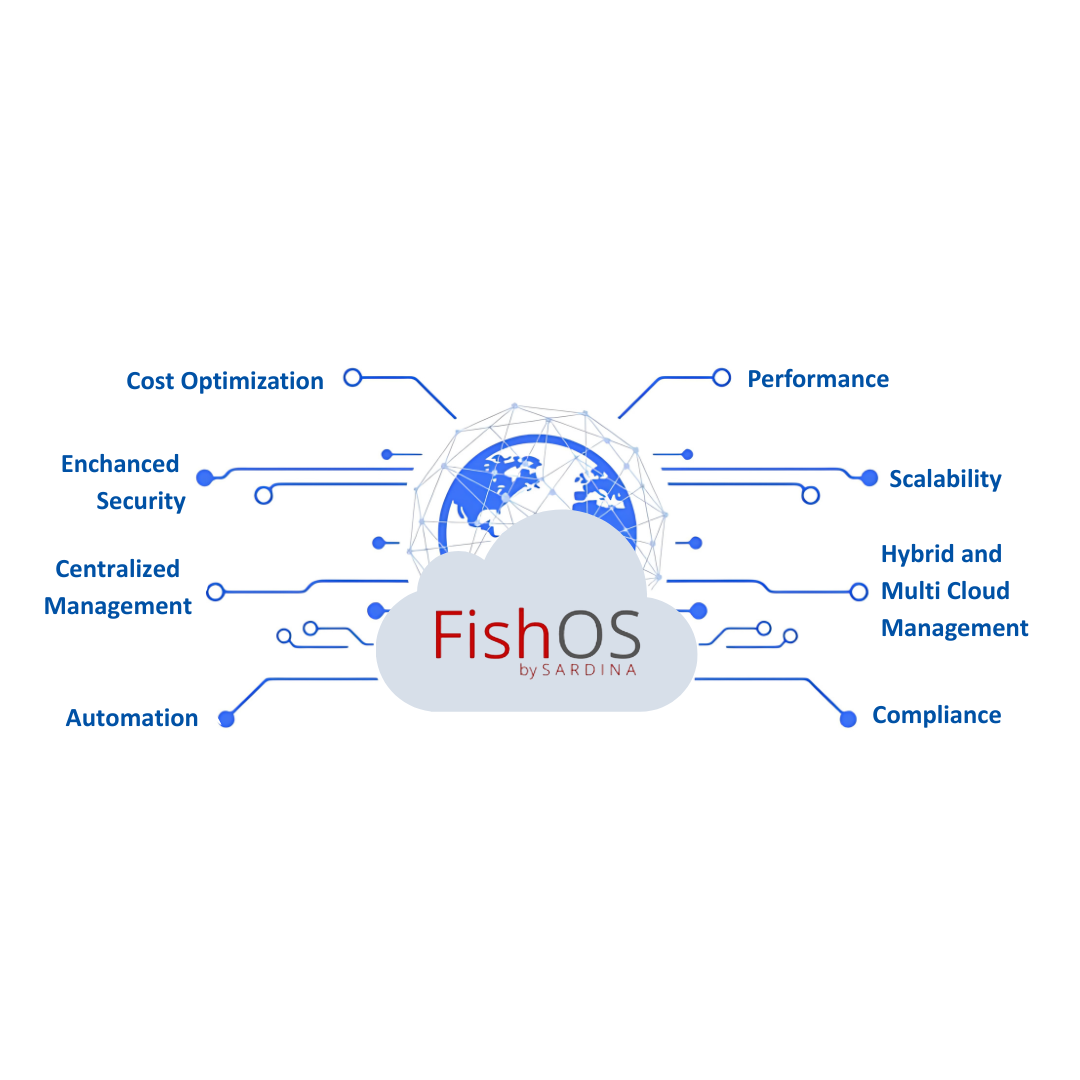
Core Infrastructure Services Delivered
Infrastructure Automation
Automated deployment of OpenStack, Kubernetes, and Ceph across diverse hardware environments.
Lifecycle Management
Orchestrate system upgrades, scaling, and patching with zero downtime—a critical feature for regulated environments.
AI-Powered Automation
The AI Health Engine automates workload tuning and resource scheduling, proactively preventing downtime and maximizing efficiency.
Unified Control Plane
Centralized monitoring, logging, and policy enforcement from a single, intuitive dashboard.
Hardware Agnostic Design
Leverage your existing x86 server hardware and deployment footprint to maximize ROI.
FishOS vs. Competitors: Why It Wins for GCC
| Feature | FishOS | VMware vSphere | OpenStack (Vanilla) | AWS Outposts |
|---|---|---|---|---|
| AI-Ops Automation | 11 ML engines (placement, health, power) | Basic analytics | Manual scripting | Limited on-prem |
| Cost Savings | 50–85% vs. public cloud | High licensing | Free but ops-heavy | Hyperscaler pricing |
| Zero-Downtime Upgrades | Built-in Upgrader | Patches risky | Complex process | Vendor-dependent |
| GCC Compliance | FSD-custom NESA/TDRA | Add-ons needed | Custom dev | Regional but costly |
| Scalability | S/M/L bundles to hyperscale | Enterprise-only | DIY scaling | Pay-per-use lock-in |
The Intelligent Heartbeat of FishOS
FishOS’s “Intelligent Heartbeat” is an AI-driven system that continuously monitors and optimizes your cloud. By using predictive analytics, it foresees and prevents issues before they happen.
Key features include:
Predictive Analytics
Analyzes real-time data to predict failures and maintain smooth operations.
Automated Resource Management
AI automatically places and rebalances workloads without downtime.
Energy Efficiency
Powers down idle servers during low usage to save energy and reduce costs.
Cost Savings
Maximizes server use, cutting cloud expenses by up to 10x.
Zero-Downtime Upgrades
Enables seamless updates with self-healing to keep systems running non-stop.
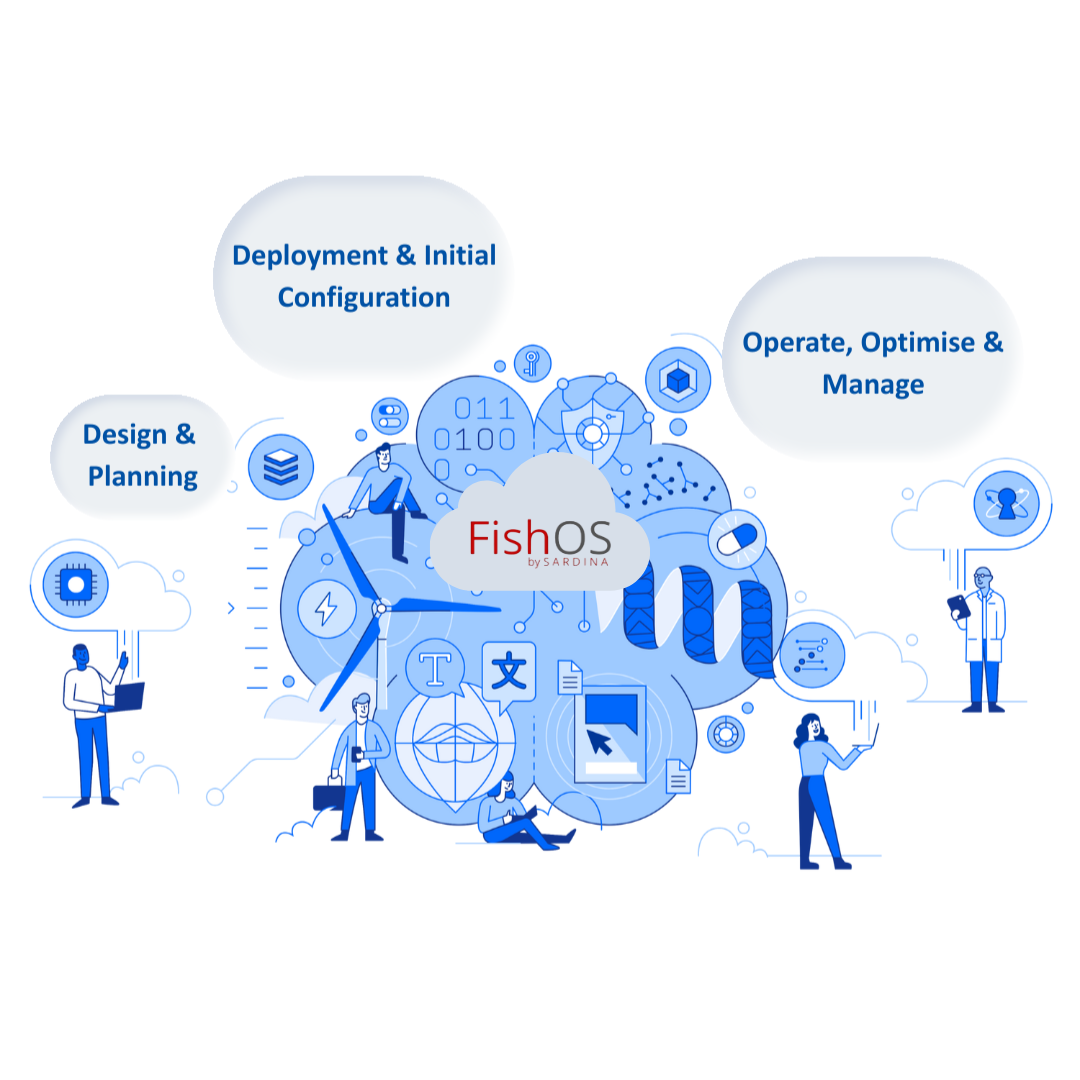
How FSD-Tech Deploys and Supports FishOS

Assessment & Planning
Comprehensive analysis of your server footprint, network topology, compliance needs, and business goals across GCC.

Tailored Design
Collaborative workshops defining cloud enablement strategies, licensing optimization, and edge compute integration.

Automated Deployment
Fully automated one-click FishOS installer ensures stable OpenStack, Kubernetes, and Ceph clusters within hours.
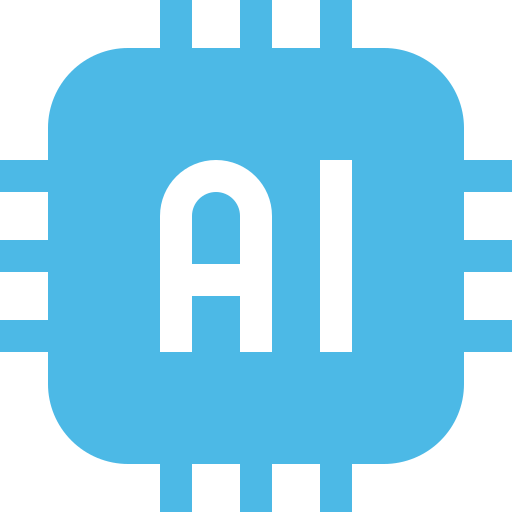
AI-Driven
Operations
Our AI Health Engine proactively monitors, rebalances workloads, and automates rolling upgrades with zero downtime.

Ongoing Managed Services
24×7 monitoring, usage insights, audits, policy tuning, and SLA-backed support tailored for GCC regulations.

Knowledge Transfer & Training
24×7 monitoring, usage insights, audits, policy tuning, and SLA-backed support tailored for GCC regulations.
The 7-Step Zero-Downtime Migration Methodology
| Step | Focus | FSD-Tech Deliverable |
|---|---|---|
| Day 0: Discovery | Infrastructure & Goals | Detailed assessment of server footprint and business priorities across GCC markets. |
| Day 1: Provisioning | Automated Deployment | One-Click Installer deploys OpenStack, Kubernetes, and Ceph in hours. |
| Day 2: Migration | Data Transition | Zero-Downtime Migration Plan executed, mapping dependencies and converting legacy VMs. |
| Day 3: Optimization | AI Enablement | Activate FishOS AI Health Engine for self-healing and automatic workload rebalancing. |
| Day 4: Governance | Policy Enforcement | Implement robust Multi-Tenant Security and Role-Based Access Controls (RBAC). |
| Day 5: Resilience | Lifecycle Management | Configure Rolling Upgrades and live maintenance features to eliminate patch-cycle disruption. |
| Day 6+: Ongoing Support | Operations & Tuning | 24/7 Managed Services, compliance audits, and proactive cost optimization. |
Optimize Cloud Infrastructure with Ease
Deploy Smarter with FishOS
Featured Blogs
STILL NOT SURE?
Frequently Asked Questions
What is FishOS and what cloud platforms does it support?
FishOS is a fully-automated private cloud management platform integrating OpenStack, Kubernetes, and Ceph for scalable hybrid cloud deployments.
How does FishOS accelerate private cloud deployment?
It uses a one-click automated installer to deploy production-ready OpenStack, Kubernetes, and Ceph clusters within hours, not weeks.
What are the core components of FishOS architecture?
FishOS includes controller nodes for OpenStack services, compute nodes for workload resources, storage nodes with Ceph, a traffic balancer, and a deployer for upgrades.
Why does FishOS require a minimum of three nodes?
Three nodes ensure high availability, fault tolerance, safe storage replication, and enable zero-downtime rolling upgrades.
Can FishOS operate in hybrid cloud environments?
Yes, FishOS supports hybrid cloud orchestration, allowing seamless workload mobility between private data centers and public clouds.
What kind of automation does FishOS provide?
FishOS automates lifecycle management including provisioning, scaling, health monitoring, rolling upgrades, and workload rebalancing with AI.
How does FishOS enhance cloud operational efficiency?
Its AI Health Engine continuously analyzes metrics to proactively rebalance workloads, prevent bottlenecks, and optimize resource usage.
Does FishOS offer multi-tenant support?
Yes, it enforces tenant isolation, quota management, and role-based access control to secure shared environments.
What monitoring and observability tools does FishOS integrate with?
It exposes telemetry and metrics compatible with Prometheus, Grafana, and other observability platforms via APIs.
How does FishOS ensure data protection?
By using Ceph’s distributed replicated storage designed for fault tolerance and supporting backup automation with FishOS Cannery.
What are the licensing and cost benefits of FishOS?
FishOS offers volume discounts starting at 500 cores and reduces TCO via AI-driven workload consolidation and efficient resource use.
Can FishOS support GPU workloads?
Yes, the advanced FishOS package supports GPU scheduling for specialized high-performance applications.
How are upgrades handled in FishOS?
FishOS performs rolling, zero-downtime upgrades coordinated across nodes to maintain continuous operation.
What kind of support and SLAs does FSD-Tech provide for FishOS?
FSD-Tech offers 24×7 SLA-backed support with expert engineering assistance, tailored for the GCC market
Is FishOS compatible with existing enterprise tools?
Yes, FishOS is compatible with a broad range of hardware and integrates via APIs to fit within existing monitoring and deployment workflows.
